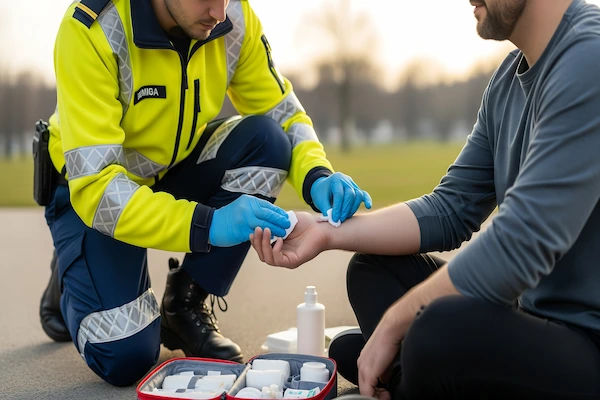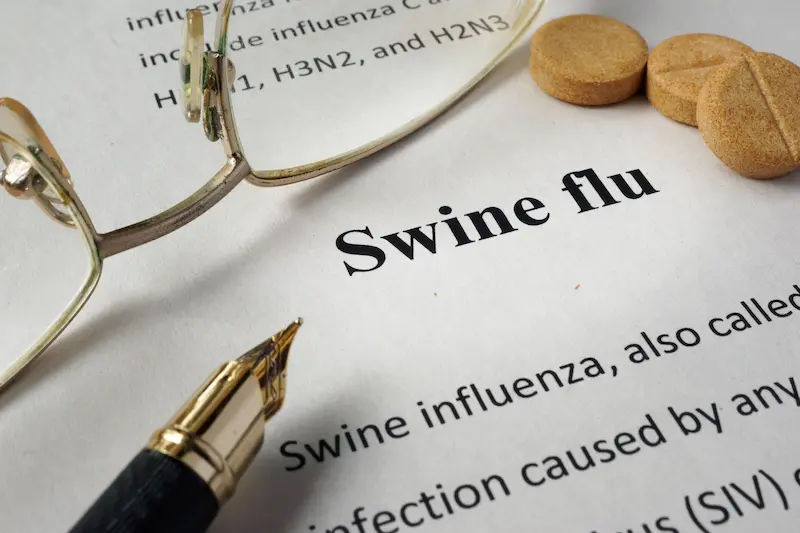Endometriosis: Symptoms, Causes, and Treatment Options
Learn about endometriosis symptoms, causes, diagnosis, and treatment options. Understand its impact on fertility, pain management strategies, and when to seek medical help.

Written by Dr. J T Hema Pratima
Reviewed by Dr. Dhankecha Mayank Dineshbhai MBBS
Last updated on 13th Jan, 2026

Endometriosis is a common yet often misunderstood health condition that affects many women. If you or someone you know has been diagnosed with endometriosis or is experiencing symptoms, this guide will help you understand the condition, its causes, and the best ways to manage it.
What is Endometriosis?
Endometriosis occurs when tissue similar to the lining of the uterus (endometrium) grows outside the uterus, often on the ovaries, fallopian tubes, or other pelvic organs. This tissue behaves like normal uterine tissue—thickening, breaking down, and bleeding during each menstrual cycle. However, because it has no way to exit the body, it becomes trapped, leading to inflammation, pain, and sometimes scarring.
Common Symptoms of Endometriosis
Endometriosis symptoms vary from woman to woman, but some of the most common signs include:
- Severe menstrual cramps (dysmenorrhea) – Pain that worsens over time and may not improve with usual painkillers.
- Chronic pelvic pain – Discomfort in the lower abdomen, even outside of menstruation.
- Pain during or after intercourse (dyspareunia) – This can make intimacy uncomfortable.
- Heavy or irregular periods – Excessive bleeding or spotting between periods.
- Painful bowel movements or urination – Especially during menstruation.
- Infertility – Some women discover they have endometriosis when struggling to conceive.
- Fatigue and bloating – Persistent tiredness and digestive discomfort.
If you experience any of these symptoms, it’s important to consult a doctor for a proper diagnosis.
What Causes Endometriosis?
The exact cause of endometriosis is still unclear, but several theories exist:
1. Retrograde menstruation – When menstrual blood flows backward into the pelvic cavity instead of leaving the body.
2. Genetic factors – Women with a family history of endometriosis are more likely to develop it.
3. Immune system issues – Some researchers believe immune disorders may prevent the body from recognizing and destroying misplaced endometrial tissue.
4. Hormonal influence – Estrogen appears to promote endometriosis growth.
5. Surgical scar implantation – Endometrial cells may attach to surgical incisions (like after a C-section).
How Does Endometriosis Affect Health?
Endometriosis can significantly impact a woman’s quality of life, leading to:
- Chronic pain – Affecting daily activities and emotional well-being.
- Fertility challenges – Scarring and inflammation can block fallopian tubes or affect egg quality.
- Digestive and urinary issues – If endometrial tissue grows on the bladder or intestines.
- Mental health struggles – Persistent pain and fertility concerns may contribute to anxiety or depression.
Diagnosis and Treatment Options
If you suspect endometriosis, your doctor may recommend:
- Pelvic exam – To check for cysts or scars.
- Ultrasound or MRI – To detect abnormal tissue growth.
- Laparoscopy – A minimally invasive surgery to confirm endometriosis.
Treatment Options
There’s no cure for endometriosis, but treatments can help manage symptoms:
1. Pain Relief Medications
- Over-the-counter pain relievers (ibuprofen, naproxen).
- Hormonal therapy (birth control pills, IUDs) to regulate periods and reduce tissue growth.
2. Surgical Treatments
- Laparoscopic surgery – Removes endometrial tissue while preserving fertility.
- Hysterectomy – In severe cases, removal of the uterus may be considered (only for women not planning pregnancy).
3. Lifestyle and Home Remedies
- Regular exercise – Helps reduce inflammation and pain.
- Heat therapy – A warm bath or heating pad can ease cramps.
- Anti-inflammatory diet – Foods rich in omega-3s (salmon, flaxseeds) and antioxidants (berries, leafy greens) may help.
- Stress management – Yoga, meditation, and therapy can improve emotional well-being.
4. Fertility Treatments
- If pregnancy is a goal, IVF or other fertility treatments may be recommended.
When to See a Doctor?
Don’t ignore persistent pelvic pain or heavy periods. Early diagnosis can prevent complications. If you’re struggling with symptoms, consider booking a consultation with a specialist through Apollo 24|7 for expert guidance and treatment options.
Final Thoughts
Endometriosis can be challenging, but with the right care and support, symptoms can be managed effectively. If you suspect you have endometriosis, don’t hesitate to seek medical advice. Remember, you’re not alone; many women live full, healthy lives with proper treatment and self-care.
Would you like to schedule a consultation or learn more about managing endometriosis? Visit Apollo 24|7 today for expert care and support.
Consult an Gynecologist for the best advice
Consult an Gynecologist for the best advice

Dr. Mona Yadav
Obstetrician and Gynaecologist
19 Years • MBBS, MD (Obstetrics & Gynaecology)
Dombivli
Nulife multispeciality, Dombivli

Dr. Parul Sharma
Obstetrician and Gynaecologist
8 Years • MBBS, MS (Obstetrics & Gynaecology)
New Delhi
THE DOCTORS NESST, New Delhi

Dr. Asha Rani Singh
Obstetrician and Gynaecologist
24 Years • MBBS DGO
Delhi
Dr Asha Rani Singh Clinic, Delhi
Dr. J Aswini Sowndarya
Obstetrician and Gynaecologist
4 Years • MBBS, MS Obstetrics & Gynaecology, FMAS, FART
Rajamahendravaram
Tholat Memorial Multi Speciality Hospital, Rajamahendravaram

Dr. Shyamala Devi
Obstetrician and Gynaecologist
38 Years • MBBS, MS Obstetrics & Gynaecology
Vijayawada
Sri Shivshakti Nilayam, Vijayawada




